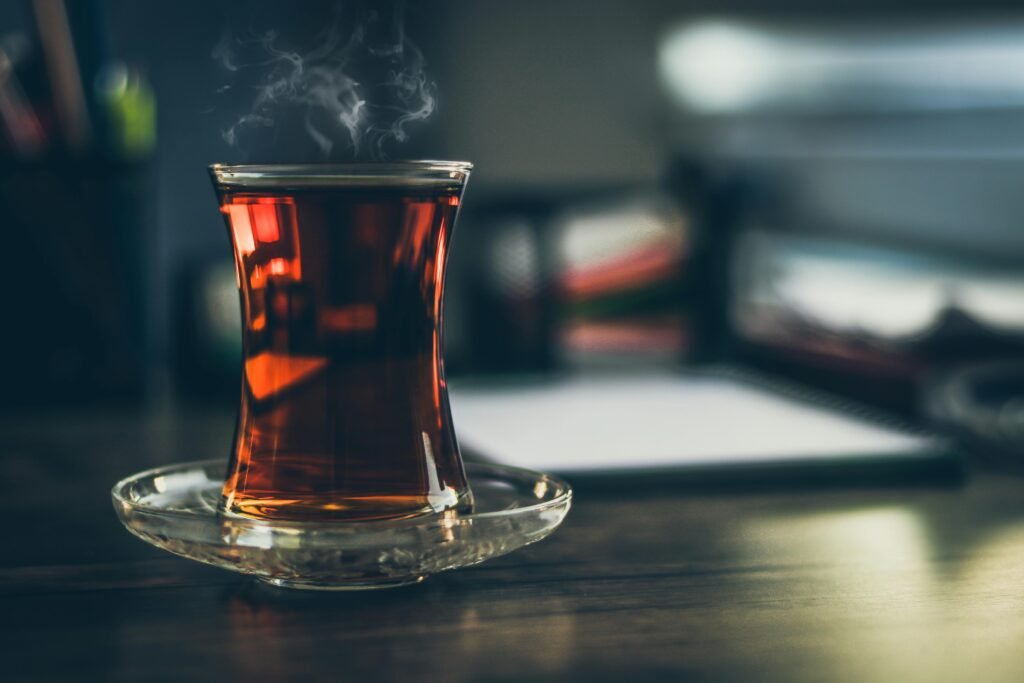Obstructive Sleep Apnea (OSA) is a prevalent sleeping disorder characterized by recurrent interruptions in breathing during sleep, which can significantly impact sleep quality and overall health.
These interruptions are often caused by the relaxation of throat muscles that block the airway, leading to brief periods of suffocation. Individuals suffering from OSA may experience loud snoring punctuated by gasps or pauses in breathing, causing disturbances not only to themselves but also to their sleep partners.
The condition is more common in obese individuals, as excess body weight can contribute to airway obstruction due to increased fat deposits around the neck.
Other factors that can increase the risk of OSA include age, gender (with men being more susceptible), and anatomical features such as a thick neck or narrow airway. Certain lifestyle choices, such as smoking and alcohol consumption, can also exacerbate the severity of OSA.
Common symptoms of OSA include excessive daytime sleepiness, morning headaches, irritability, and difficulty concentrating. These symptoms can lead to impaired cognitive function and heightened risk of accidents due to fatigue.
Long-term sleep deprivation caused by OSA can contribute to serious health issues, including cardiovascular problems, diabetes, and a decline in overall health and quality of life.
Understanding the implications of obstructive sleep apnea is crucial for seeking effective remedies and treatments. Among these potential remedies, natural options like berberine tea for sleep apnea have garnered attention.
As we explore the various approaches to managing OSA, it is imperative to consider how lifestyle modifications and dietary enhancements, such as incorporating berberine for sleep apnea into one’s routine, can play a significant role in improving outcomes for affected individuals.

The Role of Obesity in Sleep Apnea
Obstructive sleep apnea (OSA) is a widespread condition characterized by repeated interruptions in breathing during sleep. Research indicates a significant correlation between obesity and the prevalence of OSA.
According to the American Academy of Sleep Medicine, individuals with a body mass index (BMI) of 30 or greater are at a much higher risk for developing sleep apnea. In fact, studies suggest that approximately 70% of patients diagnosed with OSA are classified as obese. This staggering statistic underscores the urgent need to address weight management as a fundamental aspect of OSA treatment.
Excess body weight primarily contributes to obstructive sleep apnea by increasing the amount of fatty tissue surrounding the neck and throat, which can lead to airway obstruction during sleep. When the muscles in the throat relax (a normal occurrence during sleep), this additional fatty tissue can collapse into the airway, reducing airflow and resulting in apnea episodes.
Consequently, those struggling with obesity may experience disrupted sleep patterns, which can exacerbate health issues over time. This repeated pattern not only disrupts sleep quality but can also lead to increased fatigue, decreased alertness, and a higher likelihood of cardiovascular problems.
A suitable approach to alleviating OSA symptoms includes a focus on weight management. Studies have shown that even a modest weight loss of 5% to 10% can significantly improve respiratory function and reduce the severity of sleep apnea.
Incorporating lifestyle modifications, such as a balanced diet and regular physical activity, is essential. Furthermore, various natural remedies, including berberine tea for sleep apnea, can be a supplementary option.
Berberine has been linked to weight loss and metabolic health improvement, providing a potential avenue for individuals aiming to manage their symptoms more effectively. Alongside traditional therapeutic options, exploring alternatives like oolong for sleep apnea may also present beneficial outcomes.

Introduction to Berberine Tea
Berberine is a bioactive compound derived from several plants, including goldenseal, barberry, and tree turmeric. This alkaloid has been recognized in traditional herbal medicine for centuries, due to its numerous potential health benefits.
Among its various forms of consumption, berberine tea has gained popularity for its accessibility and ease of preparation. The tea is typically made by steeping the dried parts of berberine-rich plants in hot water, allowing the valuable compounds to infuse into the drink. This natural beverage is often praised for its rich, earthy flavor and vibrant yellow color, reminiscent of its botanical origins.
Research has highlighted the role of berberine in supporting metabolic health. This compound has been studied for its ability to influence multiple biochemical pathways that regulate glucose metabolism, lipid metabolism, and overall body weight management.
As a consequence, many individuals looking to address concerns such as obesity and insulin resistance have turned to berberine tea as a supportive addition to their wellness routines. Particularly relevant to those affected by obstructive sleep apnea, incorporating berberine into one’s diet may create a beneficial environment for improving overall health and potentially reducing symptoms associated with this sleep disorder.
In addition to metabolic benefits, berberine’s anti-inflammatory and antioxidant properties make it a valuable element in herbal medicine. By potentially aiding in the management of metabolic-related conditions, berberine tea may indirectly contribute to a healthier sleep pattern, which is particularly salient for individuals experiencing sleep apnea.
The diverse benefits of berberine underscore the importance of further research into its efficacy and mechanisms, as well as its applications in holistic approaches to sleep health.

How Berberine Tea Affects Sleep Quality
Obstructive sleep apnea (OSA) can significantly impact an individual’s quality of life and overall health. One natural remedy gaining attention for its potential benefits is berberine tea. Berberine, a compound found in various plants, has shown promise in improving sleep quality, particularly for those dealing with OSA.
One of the key ways berberine tea may enhance sleep is by reducing inflammation. Chronic inflammation is a known contributor to various sleep disorders, including sleep apnea. By incorporating berberine for sleep apnea into a daily regimen, individuals may experience a reduction in inflammatory markers, leading to better sleep outcomes.
Furthermore, berberine has been associated with improved insulin sensitivity. Insulin resistance can lead to weight gain, which is a major risk factor for sleep apnea. When individuals consume berberine tea for sleep apnea, they may notice improvements in their metabolic health, including better glucose regulation and weight management.
These changes can have a positive effect on sleep quality, as individuals who maintain a healthier weight tend to have a lower risk of developing OSA or experiencing its severe symptoms.
Additionally, various studies suggest that oolong tea, which contains some similar bioactive compounds to berberine, may also contribute to better sleep by promoting relaxation and reducing stress levels.
When combined with berberine, the potential synergistic effect may further enhance the overall quality of sleep for those affected by obstructive sleep apnea.
Overall, the mechanisms by which berberine tea can affect sleep quality are rooted in its ability to combat inflammation and improve insulin sensitivity, making it a promising natural approach for individuals looking to alleviate the symptoms of OSA.

Combining Berberine Tea with Oolong and Mint
Berberine tea is increasingly recognized for its potential benefits in managing various health conditions, including sleep apnea. However, the incorporation of other herbal components such as oolong tea and mint can significantly enhance its effectiveness.
Oolong tea, which is known for its unique fermentation process, contains a blend of both green and black tea properties. This blend may provide synergistic effects when combined with berberine for sleep apnea, contributing to improved overall health and wellness.
The polyphenols and antioxidants found in oolong tea can support metabolic health, which is crucial for individuals suffering from sleep apnea. By improving metabolic functioning, oolong could potentially amplify the impact of berberine tea for sleep apnea.
Moreover, oolong tea has been linked to increased fat oxidation and weight management, two significant factors that can influence the severity of sleep apnea in many individuals.
As weight management becomes increasingly essential for those dealing with this condition, the combination of oolong and berberine may offer a holistic approach to symptom relief.
In addition to oolong, incorporating mint into this herbal blend can provide soothing benefits. Mint is known for its anti-inflammatory properties and ability to open up airways, thus facilitating better respiratory function.
This can be particularly beneficial for individuals experiencing obstructive sleep apnea, as the condition is characterized by airway blockages during sleep. The refreshing taste of mint not only offers a pleasant flavor profile but may also contribute to overall respiratory ease, making the drink more enjoyable and beneficial.
Together, berberine tea, oolong, and mint create a synergistic blend that can potentially help reduce sleep apnea symptoms, foster healthier sleep patterns, and enhance the quality of rest.

Brewing the Perfect Cup of Berberine Tea
Creating the perfect cup of berberine tea is essential for maximizing its potential benefits, particularly in relation to sleep apnea. To begin, sourcing a high-quality berberine extract is crucial.
Look for products that have been standardized to contain a specific percentage of berberine, as this ensures potency and efficacy. Organic options are also preferable, as they eliminate potential contaminants that could interfere with health benefits.
Once you have sourced the appropriate berberine extract, the steeping process can commence. A common method is to start with about one teaspoon of berberine powder or a berberine tea bag, added to approximately eight ounces of hot water.
It is important not to boil the water, as overly high temperatures can diminish the extract’s efficacy. Instead, allow the water to reach a temperature just below boiling, generally around 190°F (88°C), and steep for about 5 to 10 minutes, depending on your flavor preference.
For those seeking additional benefits, incorporating oolong tea into your brew can enhance the flavor profile while potentially contributing to improved sleep apnea symptoms.
Complementary ingredients like fresh mint or lemon can be added to further elevate the taste and refresh the beverage. Mint not only adds flavor but also promotes digestion, which may be beneficial for those suffering from obstructive sleep apnea. Experimenting with ratios will allow you to discover your perfect blend.
For optimal serving, consider enjoying your berberine tea in a quiet environment to enhance relaxation and mindfulness as you unwind your day. Enjoying a cup of this soothing tea in the evening may assist in preparing your body for restful sleep.
Safety and Considerations
As with any herbal remedy, the consumption of berberine tea for sleep apnea requires careful consideration of safety and potential side effects.
Berberine, derived from several plants, has been recognized for its myriad health benefits, including modulation of metabolic functions. However, it is important to approach its use with caution, especially for individuals with existing health conditions or those on medication.
Potential side effects of berberine may include gastrointestinal disturbances, such as diarrhea, constipation, gas, and stomach cramps. These symptoms often occur when berberine is consumed in large amounts, or when an individual’s body is not accustomed to it.
Starting with a lower dose of berberine for sleep apnea is recommended to mitigate such effects. As individuals adjust to the herbal compound, the dosage can be gradually increased, as necessary and tolerated.
Drug interactions are also a significant consideration when taking berberine. Berberine has the potential to affect the metabolism of various medications, such as anticoagulants, antihypertensives, and certain antidepressants.
This can either enhance side effects or diminish the therapeutic effectiveness of these drugs. Therefore, it is crucial for individuals who are currently taking prescription medications to consult with their healthcare professional before incorporating berberine tea into their routine.
Additionally, people with pre-existing conditions, especially those involving the liver or kidney, should exercise caution. Since berberine can influence bodily functions related to these organs, it becomes imperative to seek medical advice. Pregnant or nursing women are advised to refrain from using berberine due to insufficient research on safety in these populations.
In conclusion, while berberine tea for sleep apnea holds promise as a supplemental intervention, ensuring safety through professional guidance is essential. Always prioritize individual health considerations when exploring herbal remedies.

Lifestyle Changes to Support Sleep Apnea Treatment
Managing obstructive sleep apnea effectively requires a multifaceted approach, encompassing various lifestyle changes alongside potential dietary adjustments. One significant factor is weight management; individuals who are overweight may experience exacerbated symptoms.
Research suggests that even modest weight loss can lead to substantial improvements in sleep apnea severity. Monitoring caloric intake and increasing physical activity can aid in achieving and maintaining a healthy weight, which directly impacts airway obstruction during sleep.
In addition to weight loss, regular exercise is vital. Engaging in aerobic activities, such as walking, cycling, or swimming, not only promotes weight control but also enhances overall cardiovascular health.
Targeting at least 150 minutes of moderate aerobic exercise weekly can lead to better sleep quality and may reduce the severity of sleep apnea episodes. Furthermore, incorporating strength training can provide additional benefits to muscle tone and metabolism, ultimately resulting in enhanced respiratory function during sleep.
Another essential aspect of managing sleep apnea effectively is practicing proper sleep hygiene. Maintaining a consistent sleep schedule, ensuring an optimal sleep environment, and avoiding stimulants before bedtime can contribute to improved sleep quality.
Reducing alcohol consumption and refraining from smoking are also critical, as these substances can lead to relaxation of throat muscles, increasing the risk of airway obstruction.
Amid these lifestyle changes, incorporating berberine tea for sleep apnea may enhance efforts in managing the condition. Berberine, a compound found in various plants, has been studied for its potential benefits in weight management and metabolic health.
Drinking berberine tea can thus complement the aforementioned strategies, offering a holistic approach to tackling obstructive sleep apnea. The synergy created when blending berberine with lifestyle modifications can lead to improved outcomes and a better quality of life for those affected.
Conclusion: A Natural Approach to Managing Sleep Apnea
In recent discussions around managing obstructive sleep apnea, there has been a growing interest in natural remedies, with berberine tea emerging as a promising option for individuals seeking an alternative to conventional treatments.
Research suggests that berberine, a bioactive compound derived from various plants, may help improve symptoms associated with sleep apnea, especially among those who are obese. The potential benefits of berberine tea for sleep apnea have garnered attention, highlighting its anti-inflammatory properties and effects on metabolic health.
Berberine for sleep apnea can potentially contribute to weight loss and better system functioning, both of which are crucial for individuals grappling with this disorder.
As obesity is a significant risk factor for the severity of sleep apnea, integrating berberine into one’s diet may aid in reducing body weight, thereby alleviating some pressure on the airways during sleep. Furthermore, the antioxidant properties present in oolong for sleep apnea may also play a role in improving sleep quality, facilitating a more restful night free from interruptions.
Incorporating berberine tea into a comprehensive lifestyle adjustment plan that includes proper diet, exercise, and weight management can offer a natural and holistic approach to improving health outcomes related to sleep apnea. It is essential to approach this remedy with realistic expectations, as results can vary from person to person.
Prior to integrating berberine tea for sleep apnea into one’s regimen, consulting with a healthcare professional is advisable to ensure it complements existing treatments and accounts for individual health considerations.
Ultimately, exploring the benefits of natural remedies like berberine tea for sleep apnea can empower individuals to take charge of their health, promising pathways to enhanced well-being and improved sleep quality.



